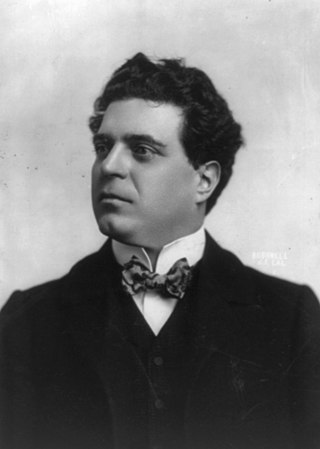
Pietro Mascagni was an Italian composer primarily known for his operas. His 1890 masterpiece Cavalleria rusticana caused one of the greatest sensations in opera history and single-handedly ushered in the Verismo movement in Italian dramatic music. While it was often held that Mascagni, like Ruggero Leoncavallo, was a "one-opera man" who could never repeat his first success, L'amico Fritz and Iris have remained in the repertoire in Europe since their premieres.

Gianluigi Gelmetti OMRI, was an Italian-Monégasque conductor and composer.
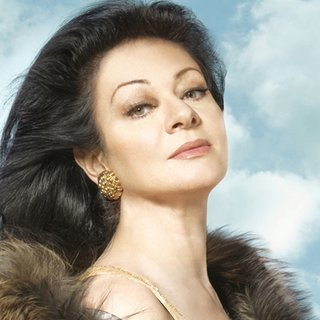
Daniela Dessì was an Italian operatic soprano.

Roberto Abbado is an Italian opera and symphonic music conductor. Currently he is an Artistic Partner of The Saint Paul Chamber Orchestra. In 2015 he has been appointed music director of Palau de les Arts Reina Sofia in Valencia, Spain. From 2018 he's Music Director of the Festival Verdi in Parma. Previously he held the position of Chief Conductor of Münchner Rundfunkorchester.

Nicola Samale is an Italian composer and conductor.

Le maschere is an opera in a prologue and three acts by Pietro Mascagni to an Italian libretto by Luigi Illica.

Lina Bruna Rasa was an Italian operatic dramatic soprano. She was particularly noted for her performances in the verismo repertoire and was a favourite of Pietro Mascagni who considered her the ideal Santuzza. Bruna Rasa created the roles of Atte in Mascagni's Nerone, Cecilia Sagredo in Franco Vittadini's La Sagredo and Saint Clare in Licinio Refice's 1926 oratorio, Trittico Francescano. She also sang the role of Tsaritsa Militrisa in the Italian premiere of Nikolai Rimsky-Korsakov's The Tale of Tsar Saltan.

Carlo Colombara is an Italian operatic bass. He has sung leading roles in major opera houses including La Scala in Milan, the Vienna State Opera; the Real Teatro di San Carlo in Naples, the Arena di Verona, the Royal Opera House in London, and the Metropolitan Opera in New York City.
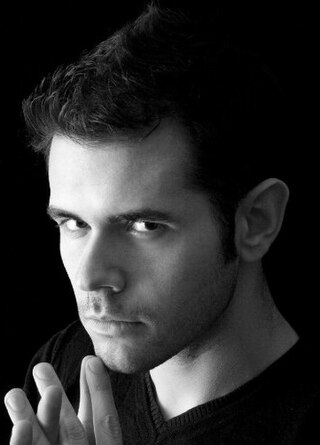
Francesco Cilluffo is an Italian conductor and composer.
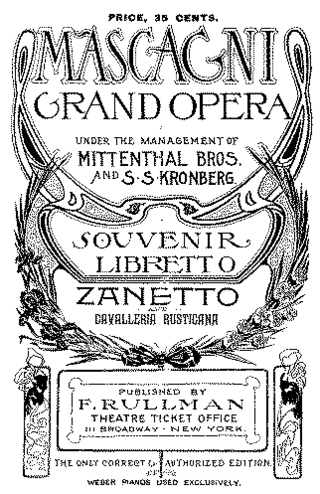
Zanetto is an opera in one act by Pietro Mascagni to an Italian libretto by Giovanni Targioni-Tozzetti and Guido Menasci. It received its first performance on 2 March 1896 at the Liceo Musicale Rossini in Pesaro. Only 40 minutes long and with cast of two singers, Zanetto was originally described by its composer as a scena lirica rather than an opera. It is set in the countryside near Florence during the Renaissance and tells the story of an encounter between a beautiful courtesan, Silvia, and a young wandering minstrel, Zanetto. The libretto was adapted from an Italian translation by Emilio Praga of François Coppée's play Le passant in which the young Sarah Bernhardt had won fame in the en travesti role of Zanetto.
Bernadette Manca di Nissa is an Italian operatic contralto who has sung leading roles in the principal opera houses of Italy as well as internationally. She has appeared at La Scala in Milan, La Fenice in Venice, Teatro San Carlo in Naples, and the Maggio Musicale Fiorentino in Florence as well as at the Royal Opera House, Covent Garden, Gran Teatre del Liceu in Barcelona, Lyric Opera of Chicago, Festival of Salzburg, Matsumoto Festival, NHK in Tokyo, Sao Carlos Theater in Lisboa etc.

Sara Mingardo is an Italian classical contralto who has had an active international career in concerts and operas since the 1980s. Her complete recording of Anna in Hector Berlioz's Les Troyens won a Gramophone Award and both the Grammy Award for Best Opera Recording and the Grammy Award for Best Classical Album in 2002. Some of the other roles she has performed on stage or on disc include Andronico in Tamerlano, Mistress Quickly in Falstaff, Rosina in The Barber of Seville, and the title roles in Carmen, Giulio Cesare, Riccardo Primo, and Rinaldo. She has also recorded several Vivaldi cantatas, Bach cantatas, and such concert works as Mozart's Requiem, Rossini's Stabat Mater, and Vivaldi's Gloria among others.
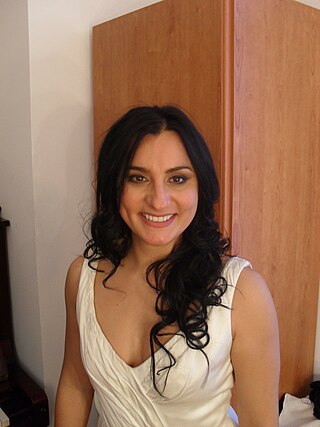
Carmela Remigio is an Italian operatic soprano.
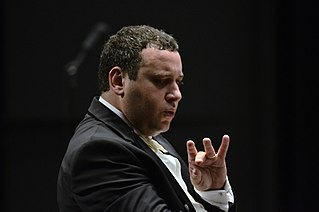
Antonino Fogliani is an Italian conductor.

Sì is an operetta in three acts composed by Pietro Mascagni to a libretto by Carlo Lombardo with verses by Arturo Franci. The libretto is based on Lombardo's operetta La duchessa del Bal Tabarin and Felix Dörmann's libretto for Majestät Mimi set by Bruno Granichstaedten in 1911. Mascagni's only venture into operetta, it premiered on 13 December 1919 at the Teatro Quirino in Rome. The operetta takes its name from its central character, Sì, an actress at the Folies Bergère, so called because she could never say no.

Riccardo Frizza is an Italian conductor, particularly known for his work in the Italian operatic repertoire. After making his professional conducting debut in 2001 with Rossini's Stabat Mater at the Rossini Opera Festival in Pesaro, he went on to conduct in the leading opera houses of Europe and the United States, including La Scala, La Fenice. the Paris Opera, and New York's Metropolitan Opera.

George Andguladze is a Georgian operatic bass.
Ugo Benelli is an Italian operatic tenor. Born in Genoa and trained at La Scala, Benelli had an international career singing leading tenore di grazia roles from the early 1960s through the 1980s. In his later years he sang character roles and began a career as a singing teacher. He retired from the stage in 2004.
Michele Mariotti, born in 1979 in Urbino, near Pesaro, is an Italian conductor, the direttore musicale since 2014 of Teatro Comunale di Bologna. A graduate in composition of Pesaro's Conservatorio Rossini, where he also studied orchestral conducting, he made his professional opera debut with Il barbiere di Siviglia in Salerno on Oct. 12, 2005. As of April 2017, his repertory included nine Rossini and eight Verdi operas, an extraordinary achievement, as well as symphonies of Beethoven, Bruckner and Schubert, the Rossini Stabat mater, the Mozart Requiem and the Verdi Requiem.
Maria Cecilia Fusco was an Italian operatic soprano and voice teacher. In a long career, she appeared regularly at La Scala in Milan, and leading opera houses in Italy and abroad. Her broad repertoire included works from early Italian opera to premieres of contemporary opera.
















